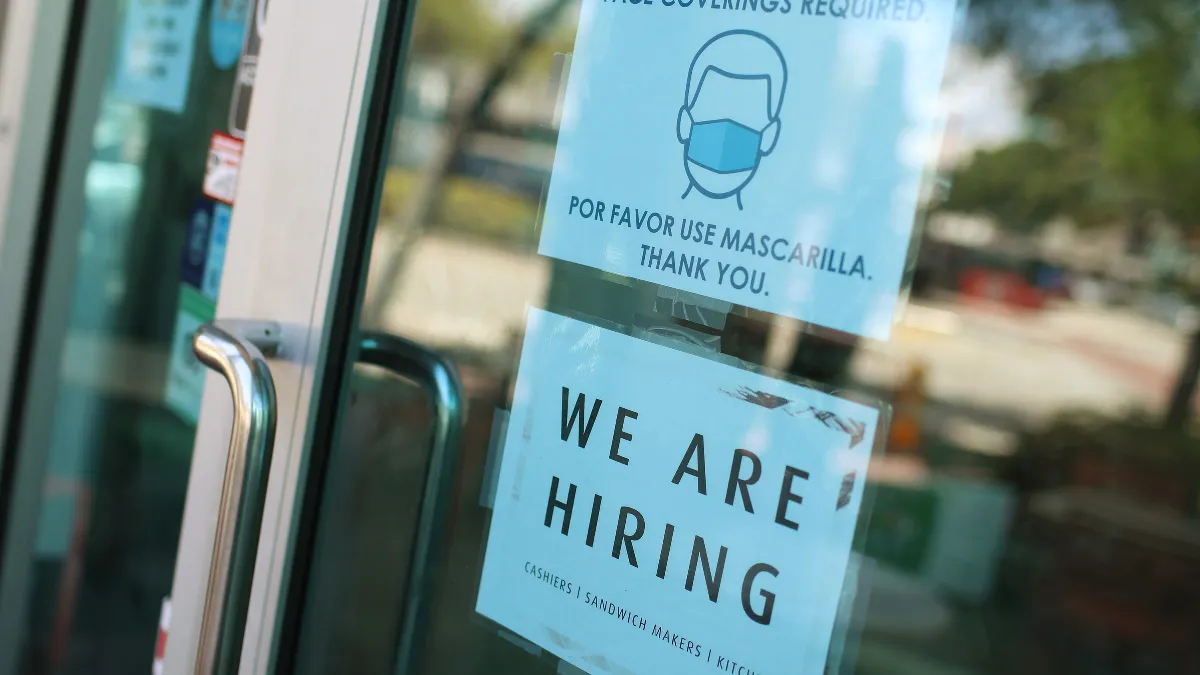Dive Brief:
- Engineering, research, and project management top the list of slowest-to-hire jobs, with a median time to hire of 47 to 49 days, according to LinkedIn. The positions filled most quickly were in administration, customer service, and accounting and auditing, with a median time to hire of 33 to 37 days.
- Those hiring for technical jobs tend to value precision over speed, putting candidates through many rounds of interviews and testing "deep textbook knowledge" that may go beyond what jobs require, LinkedIn said. On the other hand, candidates for roles like customer service and administration can often be assessed on the first or second interview, Richard Wang, CEO of Coding Dojo, told LinkedIn.
- LinkedIn calculated "time-to-hire" as the interval between a candidate’s application submission and the start date of their new job, as indicated by their LinkedIn profile. The company found that the slowest 10% of hires can take nearly three months, even in fields that typically take a comparatively short time to hire.
Dive Insight:
While the recent talent crunch has created a sense of hiring urgency for employers, the pandemic itself has made "bad hires" even more painful than before, according to a recent survey from Robert Half. More than three-quarters of respondents to the survey said they’d made the wrong hiring decision for a role, resulting in wasted time, decreased staff morale and productivity, and increased stress on supervisors. Hiring managers must weigh how long to draw the process out in order to find the right fit.
Although bad hires can hurt a company, failing to communicate and "treat candidates with dignity" during the hiring process — in other words, taking the process for granted — can also alienate good candidates and result in poor choices.
Given the findings, a happy medium may be the best approach to hiring; hiring managers should be open and regularly communicate with all candidates in consideration, but should take the time they need to make the right choice.














